
Press Center
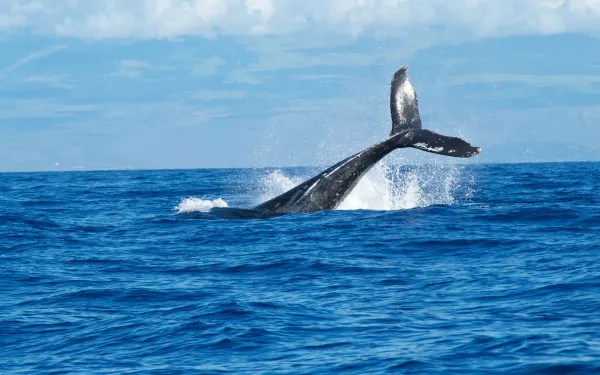
World’s first legally binding treaty to protect the high seas: Landmark UN negotiations open
New York. Treaty negotiations to conserve and protect nearly two thirds of the ocean open today at the United Nations (UN) in what is widely regarded as the greatest opportunity in a generation to turn the tide on ocean degradation and biodiversity loss. Following over a decade of discussions at the UN, the two-week Intergovernmental Conference (IGC) is the first of a series of four negotiating sessions through 2020 for a new legally-binding treaty to protect marine biodiversity in areas beyond national jurisdiction*, commonly known as the high seas. The ocean beyond 200 nautical miles (370 kilometres) from a country’s shorelines is considered international waters – “the high seas” - and is globally shared. There is no overarching law in place to safeguard its biodiversity or its vital role in provisioning services – such as generating oxygen and regulating the climate. “The high seas cover half our planet and are vital to the functioning of the whole ocean and all life on Earth. The current high seas governance system is weak, fragmented and unfit to address the threats we now face in the 21st century from climate change, illegal and overfishing, plastics pollution and habitat loss. This is an historic opportunity to protect the biodiversity and functions of the high seas through legally binding commitments” said Peggy Kalas, Coordinator of the High Seas Alliance, a partnership of 40+ non-governmental organisations and the International Union for the Conservation of Nature (IUCN). The ocean’s key role in mitigating climate change, which includes absorbing 90% of the extra heat and 26% of the excess carbon dioxide created by human sources, has had a devastating effect on the ocean itself. Managing the multitude of other anthropogenic stressors exerted on it will increase its resilience to climate change and ocean acidification and protect unique marine ecosystems, many of which are still unexplored and undiscovered. Because these are international waters, the conservation measures needed can only be put into place via a global treaty. Professor Alex Rogers of Oxford University who has provided evidence to inform the UN process towards a treaty said: “The half of our planet which is high seas is protecting terrestrial life from the worst impacts of climate change. Yet we do too little to safeguard that or to protect the life within the ocean which is intrinsic to our collective survival. Protecting the biodiversity of the high seas by bringing good governance and law to the whole ocean is the single most important thing we can do to turn the tide for the blue heart of our planet.” Through the UN, states will discuss how to protect and conserve the high seas by establishing: Marine Protected Areas (MPAs): MPAs are widely acknowledged as essential for building ocean resilience, but without a treaty there is no mechanism to enable their creation on the high seas. Environmental Impact Assessments (EIAs): Although some activities are partially regulated in some areas of the high seas, there is no legal framework for conducting EIAs to guard against potential environmental harm. Benefit sharing and technological transfer: Many countries are concerned that they will not benefit from research into high seas species and will lose out on potentially vast new ocean genetic resources, such as discoveries of marine genetic resources (MGRs) that could provide new pharmaceuticals, nutraceuticals and other uses. The negotiations will also aim at improving mechanisms to build capacity and transfer technology in developing countries relating to the high seas. Gladys Martínez, senior attorney of the Interamerican Association for Environmental Defense (AIDA)’s Marine Program, said: “We’re hopeful that this intergovernmental conference will achieve important advances toward the creation of a treaty for the conservation and sustainable use of high seas biodiversity. We’re particularly pleased to see the commitment with which Latin American nations are approaching this important negotiation.” Notes to editors: * ‘Areas beyond national jurisdiction’ means the areas of ocean outside the EEZs and continental shelves of individual states i.e. in most cases beyond 200 nautical miles offshore. It includes, as well as the high seas, the deep sea Area as defined in Part XI of the United Nations Convention on the Law of the Sea (known as UNCLOS), which is the deep seabed beyond the continental shelves of coastal States. For more information see http://highseasalliance.org The process so far: Treaty timeline Press contacts Victor Quintanilla (Mexico), [email protected], +521 5570522107 Mirella von Lindenfels (at the UN during the negotiations), + 44 7717 844 352
Read more
Renewing AIDA’s Board of Directors
We proudly welcome the new members of our Board: Xavier Martínez Esponda, Monica Roa and Manuel Pulgar-Vidal. All three are outstanding legal professionals dedicated to the defense of the environment and human rights in Latin America. AIDA’s Board of Directors has been renewed following internal elections, with the incorporation of three new members for the next period of three years. We’re honored to welcome: Xavier Martínez Esponda, a prominent Mexican attorney and Technical Operating Director of the Mexican Center for Environmental Law (CEMDA); Monica Roa, an accomplished Colombian attorney and defender of women’s rights; and Manuel Pulgar-Vidal, a renowned Peruvian environmental attorney, former Minister of Environment of Peru and current leader of the Climate and Energy Practice at WWF International. Manuel Pulgar-Vidal is returning to AIDA’s Board of Directors, which he chaired for eight years after helping to found the organization in 1998. The Board is currently chaired by Manolo Morales of Ecuador, Executive Director of the ECOLEX Management and Environmental Law Corporation. It has as Vice President, Jerónimo Rodríguez of Colombia, Sub-director of Natural Wealth Program at Chemonics International; as Chief Financial Officer, Martin Wagner of the United States, Director of the International Program at Earthjustice; and as Secretary, Margot Venton of Canada, attorney at Ecojustice. Other members include Rafael González of Costa Rica, President of Justice for Nature (JPN) and Pedro Solano of Peru, Executive Director of the Peruvian Society for Environmental Law (SPDA). AIDA is the only regional organization of Latin American experts providing free legal and technical support in defense of the environment and human rights in the Americas. We are constantly seeking new ways to strength the organization, including through the important roles of our Board members.
Read more
Guatemalan indigenous communities file complaint for dams’ damages
Affected communities have called on the Inter-American Development Bank to withdraw funding for the Pojom II and San Andrés dams for failure to comply with its operational policies. The mega-projects have damaged water sources and harmed the livelihoods of local indigenous people, particularly women. Washington, D.C. Indigenous communities affected by Guatemala’s Pojom II and San Andrés dams have called on the Inter-American Development Bank to withdraw its investment in the mega-projects. A complaint filed before the Bank’s independent accountability mechanism explains how the serious social and environmental damages caused by the planning and construction of the dams resulted from the projects’ failure to comply with the Bank’s operational policies. The communities are represented by the Interamerican Association for Environmental Defense (AIDA), the International Platform Against Impunity, and the Plurinational Ancestral Government of Q’anjob’al, Popti, Chuj and Akateko. “The damages caused by the projects’ implementation are the result of non-compliance with the Bank’s operational policies, particularly its policies on environment and sustainability, indigenous people, gender, and information disclosure,” explained Liliana Ávila, AIDA attorney. The complaint details how the dams were authorized without adequate community consultation, and how those affected did not receive sufficient information on the risks. In addition, community members who have peacefully resisted the projects have suffered attacks, threats, and harassment; in 2017, they reported the murder of one local resident, which has yet to be resolved. The construction of the dams has also caused severe environmental damage, including water scarcity and pollution, which have affected local people’s ability to fish, grow food, and maintain their tradition lifestyle. The affected people of the microregion of Ixquisis, in the department of Huehuetenango, are primarily indigenous Mayans including the Chu, Q’anjob’al and Akateko ethnic groups. “The damages from the dams are differentially suffered by women, since they are the primary managers of water use in their homes,” said Anabella Sibrián from the International Platform Against Impunity. “The women of Ixquisis face stigmatization and live in fear of retaliation for their peaceful opposition to the projects.” The Pojom II hydroelectric plant is operated by Generadora San Mateo S.A, while San Andrés is run by Generadora San Andrés S.A. Both are subsidiaries of Promoción y Desarrollos Hídricos S.A., a Guatemalan company. In 2013, IDB Invest, a private arm of the Inter-American Development Bank, approved loans of up to $9 million USD for the construction of Pojom II and up to $6 million USD for the San Andrés project. “We our hope that the Bank’s accountability mechanism confirms the projects have violated internal policies and thus recommends that IDB Invest withdraw its investment from these harmful mega-dams,” Ávila said. The Ixquisis communities were recently awarded the 2018 Front Line Defenders award for Human Rights Defenders at Risk for their valiant, peaceful struggle to defend their water and their territory. Find more information on the case here. Press Contact Victor Quintanilla (México), AIDA, [email protected], +521 5570522107
Read more
Statement on the denouncement of violence against communities in Guatemala
Communities in northwest Guatemala publicly denounced repression and intimidation following peaceful demonstrations against the presence of the National Police and Army in their territory. The people of the microregion of Ixquisis, in the department of Huehuetenango, are currently living in fear due to the improper use of criminal law against those who have expressed their opposition to the development of the Pojom I, Pojom II and San Andrés dams. Together with allied organizations, AIDA has denounced before the Inter-American Commission on Human Rights the worrying criminalization of human rights defenders who oppose the hydroelectric projects in Guatemala. As an organization that works in defense of human rights and the environment in Latin America, AIDA would like to express the following: The repression of freedom of association and expression is extremely worrisome. The risks faced by the people of Ixquisis and the increased acts of violence against them are alarming. We reject any act of violence or intimidation by private and public security forces against people exercising their individual and collective rights. We likewise condemn any campaign of disinformation, de-legitimization and stigmatization that may arise in response the communities’ peaceful demonstrations. The acts that have been denounced not only violate basic rights, but also affect social stability and the traditional lifestyle of the communities. AIDA expresses solidarity with the Peaceful Resistance of the Microregion of Ixquisis; and we support their struggle to defend land and water, and achieve environmental justice. We call on the State of Guatemala to: guarantee the full enjoyment of the communities’ human rights; protect those who defend them; carry out diligent actions to investigate recent acts of violence; ensure due process for those who defend their rights before the projects’ advancement; and evaluate the instances of force denounced by the communities. press contact Victor Quintanilla (Mexico), AIDA, [email protected], +52 5570522107
Read more
Statement on the United States’ departure from the UN Human Rights Council
Today AIDA, as an organization that works to protect the right to a healthy environment in the Americas, released the following statement after the United States decided to withdraw from the United Nations Human Rights Council: We consider it a worrying and unfortunate maneuver that could isolate the United States from the international community and weaken its ability to positively influence human rights protection around the world. This decision sends a negative message, especially to countries with serious human rights situations, about which the United States has expressed concern. From our perspective, this decision shows that the administration has also ignored the thousands of people and organizations in the United States that have spoken out against internal policies, including those involving the separation of migrant families and climate change. It’s important to bear in mind that, despite their departure from the Council, the human rights situation in the United States may continue to be evaluated by that body, as it is for other nations that participate in the U.N. Faced with this decision, we urge other States to respond by demonstrating their leadership to ensure the effective protection of human rights globally. The importance of human rights isn’t about a political perspective, isn’t about a party, is about decency and humanity. PRESS CONTACT: Víctor Quintanilla (Mexico), AIDA, [email protected], +521 5570522107
Read more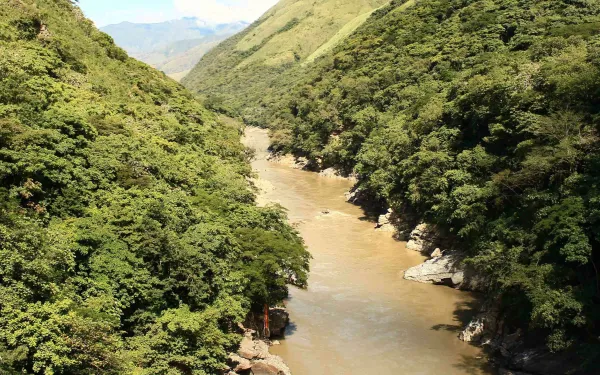
Communities affected by Hidroituango dam in Colombia file complaint at IDB
In the midst of the humanitarian crisis caused by the Hidroituango dam project in the Cauca river basin, local communities request that the Inter-American Development Bank (IDB)’s accountability mechanism investigate whether the financial entity violated its environmental and social standards when investing in the project. Washington, D.C. Communities affected by the construction of the Hidroituango dam in Antioquia, Colombia, filed a complaint with the Independent Consultation and Investigation Mechanism (MICI) of the Inter-American Development Bank (IDB) at its Washington, DC headquarters today. The complaint requests that this accountability office investigate whether the IDB, through both its public and private lending arms, violated its own social and environmental standards when it invested in the project. Through the complaint, the affected communities, represented by Movimiento Ríos Vivos Antioquia, highlight that the bank did not follow its policies that investment projects must be sustainable, participatory and respectful of national legislation in the case of HidroItuango. There was no adequate environmental impact assessment, communities did not have access to participation or information, and the project occurs in a context of human rights violations and disproportionate use of force. It has also endangered the lives of thousands of people, who have had to be evacuated ad hoc due to the dam crisis. This contradicts the social and environmental standards required of IDB investments. The hydroelectric plant will be the largest in Colombia, with a 49 mile (79 km) reservoir that will flood a surface of 11,120 acres (4,500 hectares). The IDB Group has financed the project through various types of investment. In 2012, it approved a $2 million in technical cooperation for the Colombian State and in 2016, $550 million in direct investments to the company in charge of the project, Empresas Públicas de Medellín (EPM). In addition, the IDB manages a $1 billion loan package for the project, with funds from multiple institutional investors, including banks in Europe (KfW IPEX (Germany), BNP Paribas (France), BBVA y Banco Santander (Spain)), Asia (ICBC (China), Sumitomo Mitsui (Japan)), and Canada (CDPQ). The MICI responds to complaints from individuals and communities affected by IDB-financed development projects. The communities settled in the Cauca river basin and its tributaries that are affected by Hidroituango, are accompanied in the complaint process by the Center for International Environmental Law (CIEL), Interamerican Association for Environmental Defense (AIDA) and International Accountability Project (IAP). The claim comes amid a humanitarian crisis in the dam construction area and a wave of increasing violence against people who are defending their territory and water and oppose the project. What began on April 28 with the obstruction of one of the dam's tunnels has resulted in landslides, floods, and thousands of people displaced from their homes. All this has exposed the inadequate evaluation of project impacts and the poor environmental regulation under which the project was authorized on every front. The state of emergency in the area is still in effect, and neither the Colombian government or the company has ruled out the risk of the dam collapsing. The members of Movimiento Ríos Vivos have suffered multiple threats, intimidations, and rights violations. Between May 2 and 8, two of its members were killed. In addition, the region where the dam is located has been affected by historical violence and armed conflict. press contacts Isabel Zuleta, Movimiento Ríos Vivos Antioquia, +57 3217347264, [email protected] Carla García, Center for International Environmental Law, [email protected] Astrid Puentes, Interamerican Association for Environmental Defense, [email protected] Carlos Lozano, Interamerican Association for Environmental Defense, [email protected] Alexandre Sampaio, International Accountability Project, [email protected]
Read more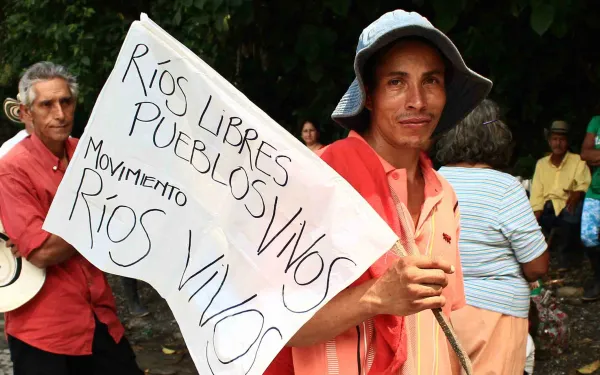
Organizations call for support for communities affected by Colombia’s Hidroituango dam
Communities affected by the Hidroituango dam have denounced the murder of two of their members over the past few days. In addition, a recent obstruction in one of the dam’s tunnels means the dam is at risk of overflowing, which could cause an avalanche of mud and debris. Allies are calling on authorities to investigate the harms to local communities and provide adequate support for those affected. Two members of Movimiento Ríos Vivos Antioquia, the coalition of communities affected by Colombia’s Hidroituango Dam, have been murdered in the last several days. Hugo Albeiro George Pérez and Luis Alberto Torres Montoya were murdered on May 2 and 8, respectively, according to statements from Ríos Vivos. Members of the movement have also suffered threats, intimidation, and human rights violations due to their defense of their land and the Cauca River. At the same time, residents of towns downstream from the dam are living in fear and uncertainty this week, faced with a potential environmental catastrophe. The imminent danger is caused by an obstruction in one of the dam’s diversion tunnels that, by interrupting the flow of the Cauca River, could cause the dam to overflow with such force that it would release not just water but an avalanche of mud and debris. The Interamerican Association for Environmental Defense (AIDA), the Center for International Environmental Law (CIEL), and the International Accountability Project (IAP) express our support for Movimiento Ríos Vivos of Antioquia and the communities affected by the Hidroituango Dam in Colombia. We demand that Colombia’s environmental authorities find and punish those responsible for the murders, as well as investigate the ongoing damages caused by the dam’s construction. We also call on the national government to promptly and adequately provide support for affected families. Hidroituango, expected to become Colombia’s largest dam, will affect 12 municipalities, changing the lives of thousand of families that depend directly on the river. The project has received funding from IDB Invest, the private-sector branch of the Inter-American Development Bank. Press contact: Víctor Quintanilla, AIDA, +521 5570522107, [email protected]
Read more
Civil society organizations denounce assassination of member of Movimiento Ríos Vivos in Colombia
We stand in solidarity with the Movimiento, and we request that the Colombian State investigate this act and punish those responsible. Furthermore, we ask that Colombia adopt urgent and effective measures to stop ongoing violence against environmental defenders. The undersigned national and international organizations categorically condemn the assassination in Colombia of Mr. Hugo Albeiro George Pérez, member of Movimiento Ríos Vivos. Movimiento Ríos Vivos denounced the murder of Mr. George, who is a member of the Asociación de Víctimas y Afectados por Megaproyectos (ASVAM) El Aro—part of Movimiento Ríos Vivos Antioquia—and who, along with his family, was affected by the construction of the Hidroituango dam. The incident, in which his nephew Domar Egidio Zapata George was also killed, occurred on May 2, 2018, in Puerto Valdivia, Antioquia, in the context of regional community mobilizations against the social and environmental risks of the damming of the Cauca River. Hidroituango would be the largest dam in Colombia, with a height of 225 meters and a storage capacity of 20 million cubic meters of water. The project will affect 12 municipalities and impact thousands of families who depend on the river. The project is being financed by a loan package from IDB Invest, the private-sector arm of the Inter-American Development Bank. For defending the land and the Cauca River, Movimiento Ríos Vivos has been the target of threats, intimidation, and human rights violations. The owners of the Hidroituango project must respect human rights and act with due diligence in assessing the impacts of the dam’s construction. In response to the incident, we express our solidarity with Movimiento Ríos Vivos and with the family of Hugo Albeiro George Pérez. We request that the Office of the Attorney General of Colombia investigate this act in an expedited manner and that the appropriate court penalize those responsible. Likewise, and in the context of worsening violence against environmental defenders in the region, we demand that the government guarantee a safe setting for the work of Movimiento Ríos Vivos and to take all necessary precautions to stop the threats, intimidation, and murders against those who defend the environment and their territory. Finally, we request that environmental authorities investigate the impacts communities suffer due to the damming of the Cauca River and that the government provide assistance to the families affected by the project. Accion Ecologica, RedLar Ecuador. Afro-Colombian Solidarity Network. Alianza Internacional de Habitantes. Alianza para la Conservación y el Desarrollo, Panamá. Asamblea Veracruzana de Iniciativas y Defensa Ambiental, Lavida, México. Interamerican Association for Environmental Defense. Bank Information Center. Bretton Woods Project, Londres. CEE Bankwatch Network, Hungría Center for International Environmental Law, Estados Unidos. Centro de Derechos Económicos y Sociales, Ecuador. Coordinadora de Afectados por Grandes Embalses y Trasvases, Coagret. Colombia Grasssrooots Support, New Jersey, Estados Unidos. Colombia Human Rights Committee, Washington, DC, Estados Unidos. Colombia Land Rights Monitor. Consejo de los Pueblos Wuxtaj/CPO, Guatemala. Convergencia por los Derechos Humanos, Guatemala. Derecho, Ambiente y Recursos Naturales, Perú. Due Process of Law Foundation, Estados Unidos. Earthrights International. Ecosistemas Chile, Chile. Environmental Investigation Agency, Estados Unidos. Fundación Ambiente y Recursos Naturales, Argentina. Fundación Chile Sustentable, Chile. Fundar, Mexico. Front Line Defenders, Reino Unido. Global Witness, Reino Unido. IISCAL, Estados Unidos. International Accountability Project, Estados Unidos. International Labor Rights Forum. International Rivers. Latin America Working Group, Estados Unidos. Movement for Peace in Colombia, New York, Estados Unidos. Movimiento Mexicano de Afectados por las Presas y en Defensa de los Ríos, México. Movimiento Victoriano Lorenzo. Not1More. Oxfam. Plataforma Continental Somos una América. Pueblos Unidos de la Cuenca Antigua. Servicios para una Educación Alternativa, México. Taller de Comunicación Ambiental, Rosario. Washington Office on Latin America, Estados Unidos. Press contact: Víctor Quintanilla, AIDA, +521 5570522107, [email protected]
Read more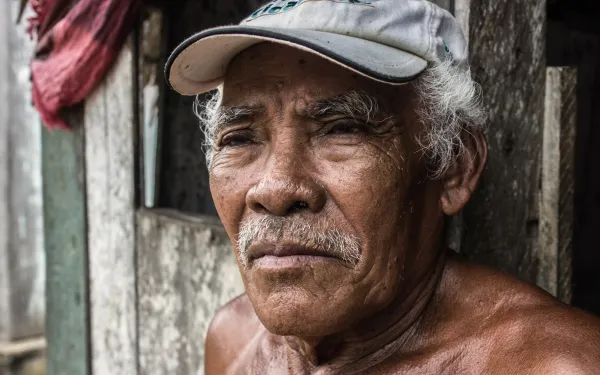
Brazil must respond to human rights violations caused by the Belo Monte Dam
In representation of communities affected by the Belo Monte Dam, we have submitted final arguments in the case against Brazil before the Inter-American Commission on Human Rights. The report presents scientific evidence of the forced displacement of indigenous and traditional communities, the mass die-off of fish, differentiated harms to men and women, and threats to the survival of local communities in the Brazilian Amazon. Washington, DC, United States and Altamira, Brazil. Furthering the formal complaint against the State of Brazil for human rights violations caused by the construction of the Belo Monte Dam, organizations representing affected communities presented their final arguments before the Inter-American Commission on Human Rights. They demonstrate the damages Belo Monte has caused to indigenous and traditional communities, and residents of Altamira, the city closest to the dam. “Human rights violations are a daily occurence for those affected by the dam, so it’s urgent that our petition before the Commission advance to sanction the government and guarantee our rights,” proclaimed Antônia Melo, coordinator of the Movimiento Xingu Vivo para Siempre, a citizens’ collective formed in the face of the dam’s implementation. The report presented before the Commission shows that the damages resulted from a severe lack of foresight and inadequate evaluation, as well as from failure to comply with the conditions for operation established by the government. The many risks denounced prior to the dam’s construction have since become long-term damages—many of which have affected men and women, and youth and the elderly, in different ways. “This report is a vital step forward for the people of the Xingu River basin, who are now closer than ever to achieving justice, forcing Brazil to respond to the violations committed, and ensuring that what happened on the Xingu never happens again,” said Astrid Puentes Riaño, co-director of the Inter-American Association for Environmental Defense (AIDA). Together with the Paraense Society for Human Rights (SDDH) and Justiça Global, AIDA represents the affected communities before the Commission. The report also documents the displacement of indigenous and traditional communities forced to leave their territories without adequate alternatives, placing their cultural survival at risk. Among the affected populations are communities dedicated to fishing, who have not yet been compensated for the loss of livelihood. The dam has caused mass die-offs of fish and, although authorities have imposed millions in fines, the report demonstrates that the underlying problem has not been resolved. Local communities now have limited use of the Xingu River as a source of food, sustenance, transportation and entertainment. The report also documents—among other serious harms—the disappearance of traditional trades, such as brickmakers and cart drivers, and of traditional cultural practices. Women, for example, have stopped giving birth in their homes and must now go to a hospital, a reality that has drastically worsened due to the oversaturation of health and education services in Altamira caused by the recent population surge. The complaint against Brazil was presented before the Commission in 2011, the year the international organism granted protective measures to indigenous people affected by the dam’s construction. The case against Brazil officially opened in December 2015. Then, last October, in a rare move designed to speed up the processing of the case, the Commission decided to unite two stages that, as a rule, are normally processed separately. Under this framework, the organizations and the State are required to present their final arguments, after which the Commission will make a decision. “We hope the Commission refers the case to the Inter-American Court of Human Rights as soon as possible, and that it recommends Brazil adopt the measures necessary to protect the life, integrity, and right to property of the indigenous and traditional communities affected by the dam,” said Raphaela Lopes, attorney at Justiça Global. “After being subject to all forms of rights violations, starting from the very beginning of this project, these communities need integral reparation; their right to free, prior and informed consent was not honored.” The Commission must now prepare a report to conclude whether or not human rights violations occurred as a result of the Belo Monte Dam, in which it may issue recommendations for remediation. If those recommendations are unfulfilled, the case may be referred to the Inter-American Court on Human Rights, which has the power to issue a ruling condemning Brazil. Belo Monte has been in operation since early 2015, though a series of judicial suspensions resulting from non-compliance with its permits means that construction has yet to be completed. Although Belo Monte has caused great harm to the people of the Xingu, Brazil now has an opportunity to avoid inflicting more damage and begin making efforts to better their quality of life. For that to happen, a prompt decision by the Commission is vital. Find more information about the case here. Press contacts: Víctor Quintanilla (México), AIDA, [email protected], +521 5570522107 Raphaela Lopes (Brasil), Justiça Global, [email protected], + 55 21 99592-7017
Read more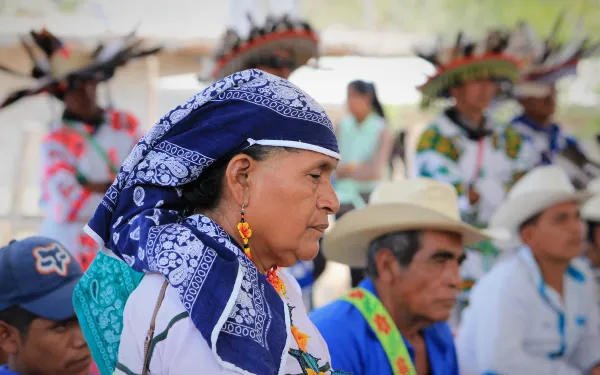
Supporting Mexico’s indigenous communities in their fight against Las Cruces Dam
AIDA filed an amicus brief demonstrating the international environmental and human rights obligations the Mexican government violated by authorizing the controversial hydroelectric project. It was written in support of a lawsuit filed by the Wixárika people of Nayarit, Mexico, whose land and sacred sites would be affected by the dam. Nayarit, Mexico. The Inter-American Association for Environmental Defense (AIDA) presented an amicus brief before the First District Court of Nayarit, demonstrating the international environmental and human rights obligations the Mexican government violated by authorizing the Las Cruces hydroelectric project. The brief supports the writ of amparo filed against the project by members of the Wixárika indigenous community. "When analyzing the project, Mexican authorities failed to adequately consult affected communities and obtain their free, prior, and informed consent. Above all, they failed to respect their rights to self-determination, autonomy, territory and cultural identity, and to a healthy environment," explained AIDA attorney Camilo Thompson. "In addition, authorities overlooked the risks of damage to the San Pedro Mezquital river basin and the ecosystem it feeds: the mangrove forests of Marismas Nacionales, an internationally protected site." The hydroelectric plant, promoted by the Federal Electricity Commission, threatens ceremonial sites on which the spiritual life of the Wixárika, Náyeris-Cora, Tepehuano and Mexicanero people depend. Members of the Wixárika tribe presented the demand for protection (amparo) in mid-2017 against the authorities that endorsed the project—the Ministry of Environment and Natural Resources and the National Water Commission. AIDA’s supporting brief, presented in March, details the international obligations Mexico breached by approving the dam—those contained in the American Convention on Human Rights, the Protocol of San Salvador, Convention 169 of the International Labor Organization on indigenous and tribal peoples in independent countries, the Convention on Biological Diversity, the Ramsar Convention on Wetlands of International Importance, and the United Nations Framework Convention on Climate Change. After the request for protection was filed, the court ordered the suspension of project permits until the legal process has concluded and a decision has been made as to whether those permits are valid. Government authorities have argued that the project must continue because it is in the public interest, and that indigenous peoples can "re-organize their spiritual life in a context modified by the project’s construction." This position ignores the rights of communities, due process, and the environmental threats affecting the public interest. In order to safeguard the rights of affected communities, the court must now continue the legal process, confirm the project’s suspension, and issue the cancellation of all related permits. “The government must maintain the balance between the protection of human rights and the environment, thereby canceling the permits granted to the Las Cruces project and protecting the rights of the affected communities," Thompson said. "In this instance, Mexico has the opportunity to strengthen the global trend towards truly sustainable energy, moving away from large dam projects that emit greenhouse gases and aggravate climate change." Learn more about the case here. Press contact: Camilo Thompson, AIDA attorney, +521 9671302346, [email protected]
Read more